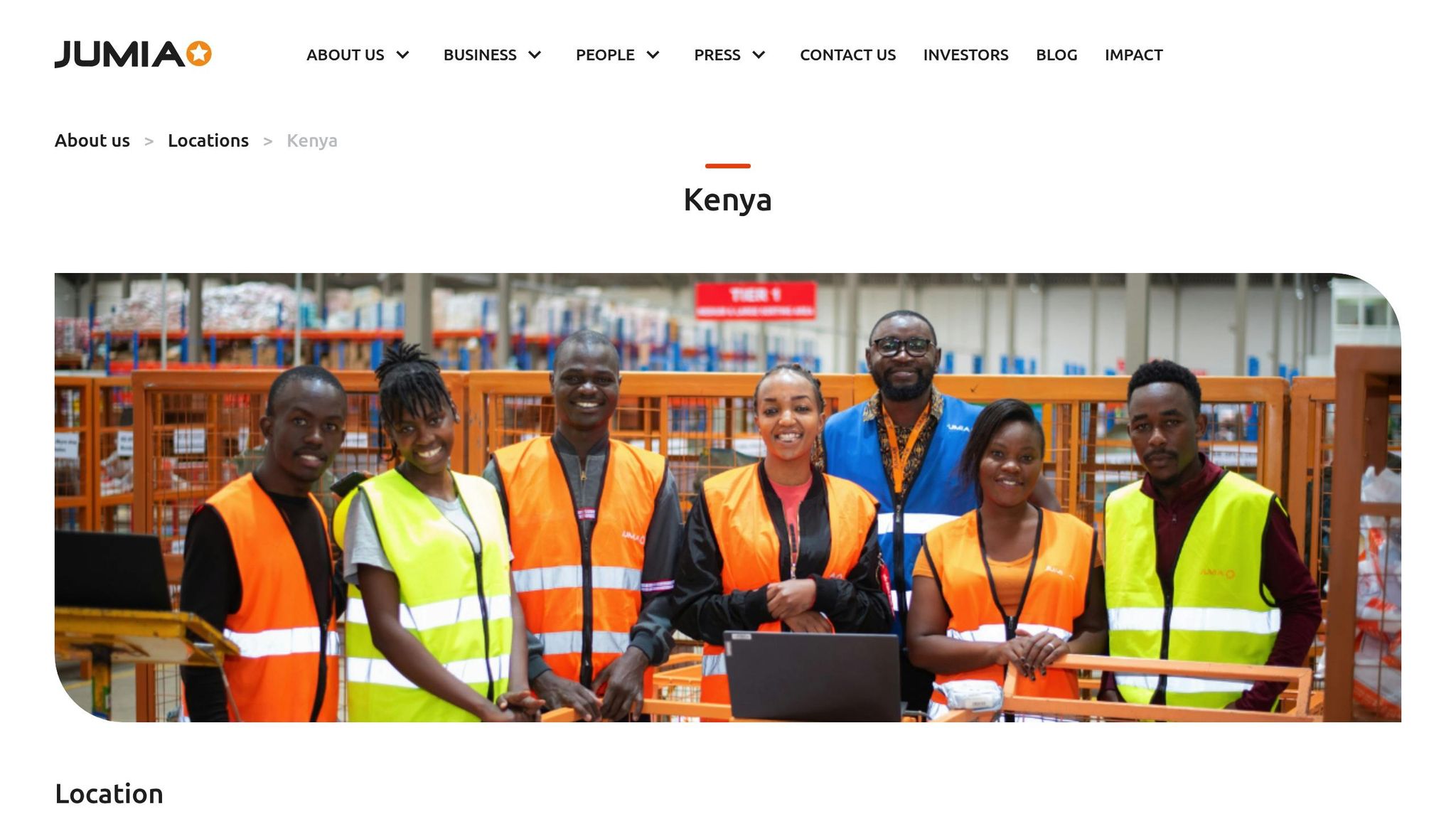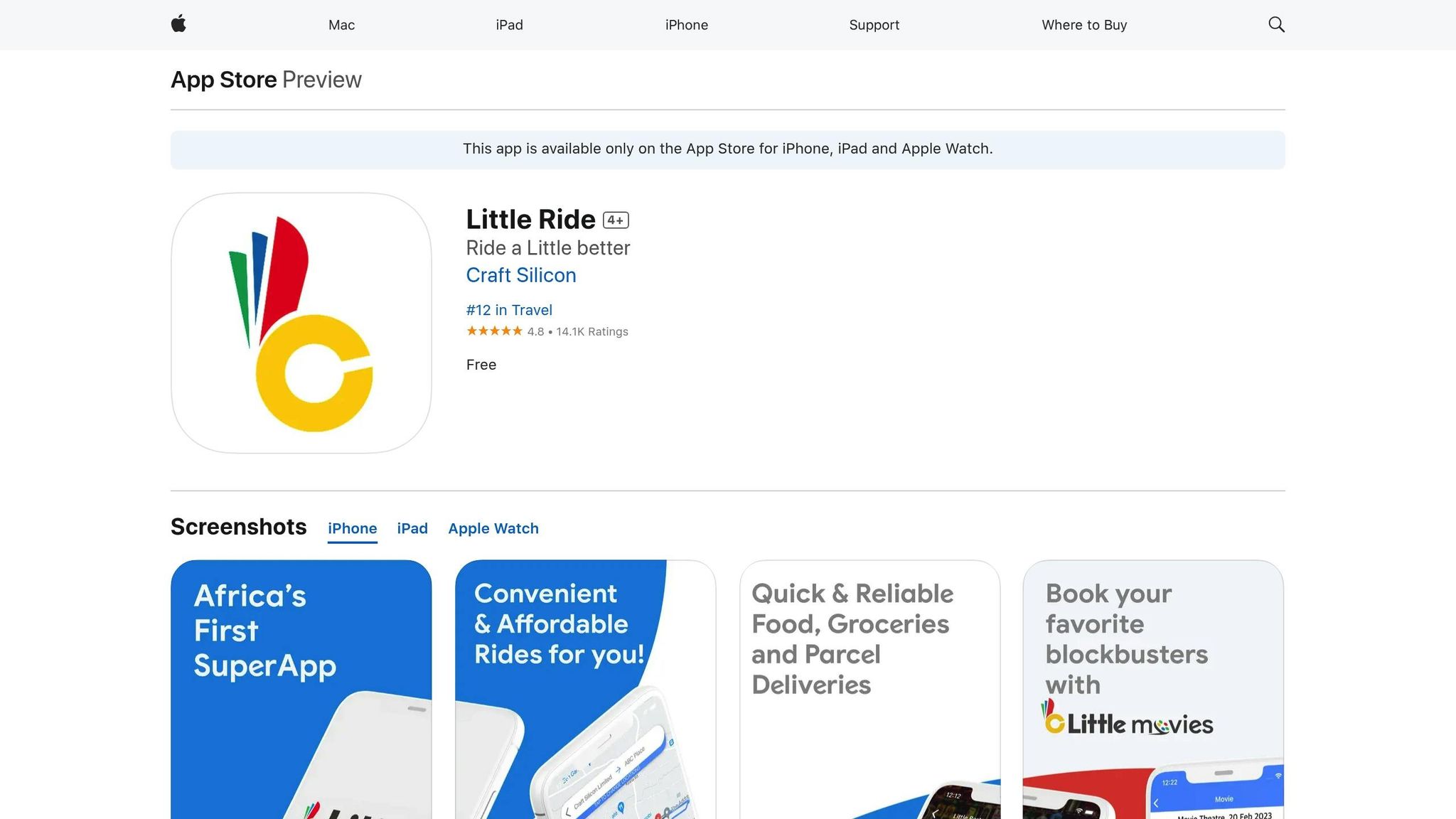Want to succeed in African markets? Start with these key SEO strategies:
- Prioritize Mobile Optimization: With 87% of internet access in Kenya via mobile, fast, mobile-friendly websites are essential. Compress images, improve load times, and optimize for 4G and low bandwidth.
- Focus on Localized Content: Go beyond translation. Use local languages, tailor content to cultural norms, and work with native experts to ensure relevance.
- Target Local Search Trends: Optimize for voice search, video SEO (46 minutes of daily video viewing in Kenya), and social media signals (170M Facebook users in Africa).
- Leverage Google My Business: Claim and optimize your profile with local keywords, photos, and attributes like "Black-owned" for better visibility.
- Track and Adapt: Use tools like Google Analytics and Search Console to monitor performance and adjust your strategy.
Quick Tip: Success in African SEO combines mobile-first design, local language optimization, and a deep understanding of regional search habits. These steps will help you connect with audiences across this dynamic market.
Local SEO: Best Practices & Strategies for Local Ranking
Current State of Digital Markets in Africa
Africa’s digital landscape is evolving quickly, fueled by mobile technology and shifting user behaviors. A mobile-first approach and localized strategies are central to navigating this dynamic market.
Mobile Internet Usage Patterns
In Africa, mobile devices are the primary gateway to the internet, deeply influencing how users interact with content. As of 2023, the mobile industry contributed $140 billion (7%) to Sub-Saharan Africa’s GDP. This number is projected to rise to $170 billion by 2030.
Some key trends shaping connectivity include:
- 4G: Expected to make up 50% of connections by 2030.
- 5G: Anticipated to add $10 billion to the regional economy.
- Mobile Internet Penetration: Currently at 27%, with 80 million active users.
- Unique Mobile Subscribers: Predicted to grow to 751 million by 2030.
With mobile technology driving this growth, it’s essential to consider the linguistic and cultural diversity of the region for effective engagement.
Multi-Language Requirements
Africa’s vast linguistic diversity requires more than simple translation – it calls for localization that reflects local culture and context. As Joshua Saxon, Content Marketer & SEO Specialist, puts it:
"Search volumes given by any tool is usually just indicative as to its popularity against other keywords to help you work out where to focus. Aside from looking at search volumes and CPC, it’s important to speak to your customers and find out what questions they have."
This highlights the need to work with native experts who understand local search habits and phrasing.
Local Search Trends
Local search behaviors significantly influence SEO strategies across Africa. For instance, in Kenya:
| Trend | Statistics | Impact on SEO |
|---|---|---|
| Mobile Access | 87% of internet access via phones | Calls for mobile-first design |
| Video Content | 46 minutes of daily viewing | Stresses the need for video SEO |
| Social Media | 170 million Facebook users across Africa | Underlines the role of social signals |
| Language Preferences | Growing use of local languages in search | Encourages local keyword focus |
Voice search and localized queries are also gaining traction, making it crucial to optimize content for natural language and regional dialects. Combined with the dominance of mobile usage and the rise in video consumption, these trends present a complex digital environment. Tailored SEO strategies are essential to connect with audiences effectively in this vibrant market.
Main SEO Strategy Elements
Finding Target Keywords
Conducting keyword research for African markets requires a deep understanding of local languages and search behaviors. As Joshua Saxon, a Content Marketer & SEO Specialist, explains:
"I have never offered international keyword research because I wouldn’t rate my Spanish level as high enough to do a thorough job. Good keyword research requires working out how the person you’re writing for would phrase their searches and requires a native-level speaker in my opinion."
Here’s how to approach keyword research effectively:
| Strategy Component | Implementation Approach | Expected Outcome |
|---|---|---|
| Local Language Analysis | Collaborate with native SEO experts | Accurate keyword variations and search intent |
| Regional Search Patterns | Use Google Keyword Planner | Identify location-specific keyword opportunities |
| Competitor Research | Study successful local businesses | Discover gaps and refine optimization strategies |
| Cultural Context | Partner with in-country linguists | Select keywords that align with cultural norms |
After identifying your target keywords, ensure your content reflects the cultural and linguistic nuances of the region.
Region-Specific Content
Creating content for African markets involves more than just translation – it requires transcreation. This process adapts the content to align with the cultural and emotional context of the audience while staying true to the original message. Local brands thrive when they tailor their content to fit specific cultural needs.
Key factors to focus on:
- Cultural Relevance: Work with local content creators who understand the subtleties of the region.
- Market-Specific Topics: Use tools like Google Trends to uncover trending topics and interests in the area.
- Language Adaptation: Avoid relying on machine translation, as it can negatively impact SEO and fail to capture local nuances.
Once your content is tailored, it’s crucial to ensure your website is optimized for mobile users.
Mobile Site Performance
In Africa, where mobile devices dominate internet usage – 87% of internet access in Kenya is via mobile – optimizing mobile performance is non-negotiable. Here’s how to do it:
- Speed Optimization: Compress images, minify code, use a CDN, and enable browser caching to improve load times.
- Payment Integration: Offer popular regional payment options like M-Pesa to streamline transactions and enhance user experience.
- Technical Metrics: Use Google PageSpeed Insights to track and improve these key mobile performance indicators:
- First Contentful Paint (FCP)
- Largest Contentful Paint (LCP)
- Cumulative Layout Shift (CLS)
- First Input Delay (FID)
sbb-itb-26b48df
Steps to Improve African Market SEO
Setting Up Google My Business
Make your Google Business Profile (GBP) stand out for local searches:
- Claim and Verify Your Profile
Start by claiming your GBP listing. Verification usually involves receiving a physical postcard at your business address.
- Optimize Your Profile Content
Build a profile that connects with local audiences:
| Profile Element | Optimization Tips | Impact on Local SEO |
|---|---|---|
| Business Description | Use keywords relevant to the region | Boosts local search relevance |
| Photos & Media | Upload high-quality images of products/services | Encourages more clicks and engagement |
| Business Hours | Include local time zones and holiday updates | Builds trust with potential customers |
| Local Attributes | Highlight traits like "Black-owned" or "Women-led" | Increases visibility in targeted local searches |
Using Regional Events in Content
Tapping into local events and cultural moments can strengthen your SEO efforts. It helps you connect with your audience while staying relevant. Keep E-E-A-T principles (Experience, Expertise, Authoritativeness, and Trustworthiness) in mind as you craft your content.
Here’s how to make it work:
- Cultural Calendar Integration: Identify key regional festivals, trade shows, and celebrations to feature in your content.
- Local Partnership Content: Work with nearby businesses or influencers to create collaborative content.
- Seasonal Campaigns: Tailor your campaigns to match local shopping habits and seasonal trends.
Keep an eye on how this content performs so you can refine your approach over time.
Tracking SEO Results
To see how your African market SEO strategy is performing, use these tools and metrics:
| Tool | Key Metrics to Track | Action Items |
|---|---|---|
| Google Analytics | User behavior, traffic sources, mobile usage | Adjust content to match traffic patterns |
| Google Search Console | Search visibility, click-through rates, mobile usability | Fix technical issues that impact performance |
| Google Trends | Regional search trends, emerging keywords | Update content to align with local interests |
Segment your data by region and device type, especially since mobile usage dominates in many African markets. Regular analysis will help you spot new opportunities and keep your strategy in sync with local needs.
African SEO Case Studies
These examples show how businesses in African markets have successfully implemented customized SEO strategies to meet local needs.
Jumia Kenya‘s Local Search Approach

Jumia Kenya enhanced its SEO by focusing on local language details, optimizing mobile pages, and creating region-specific landing pages. By prioritizing a mobile-friendly and localized strategy, they boosted their visibility in organic search results.
Takealot‘s Focus on Location-Based Content
Takealot, a South African e-commerce platform, used precise location targeting to strengthen its online presence. They developed hyperlocal content tailored to neighborhood-specific interests, introduced dynamic pricing that aligned with local market trends, and added real-time inventory updates for nearby warehouses. These efforts not only improved their local search rankings but also increased online conversion rates.
Addressing challenges like connectivity is also essential for engaging diverse audiences in these markets.
Little Cab‘s Offline-Friendly Solutions

Little Cab tackled connectivity issues in Kenya and Uganda with creative offline solutions. They introduced a lightweight progressive web app designed for low-bandwidth areas, launched an SMS-based booking system, and enabled offline content caching so users could access key ride details without consistent internet access. These steps helped them engage more users and expand their reach in areas with unreliable connectivity.
These case studies highlight how adapting SEO strategies to local conditions – such as language, infrastructure, and user behavior – can lead to success in African markets.
Conclusion
Creating an SEO strategy for African markets requires a deep understanding of local online habits and technical priorities. For instance, with 87% of internet users in Kenya accessing the web via mobile devices, prioritizing mobile-first design isn’t optional – it’s essential.
Here are the key elements to focus on:
- Mobile Optimization: Websites need to load quickly, offer easy navigation, and accommodate local payment methods.
- Language Optimization: Incorporating both English and regional language keywords is critical. In East Africa, for example, Swahili connects with 14.5 million users.
- Local Search Presence: Optimizing Google My Business listings and creating region-specific content is crucial. This is especially effective in engaging users, considering trends like growing voice search usage and the 46 minutes Kenyan users spend daily watching videos.
Success in African SEO depends on regularly analyzing performance metrics and adapting to user behavior shifts in these dynamic markets. By combining technical precision with cultural awareness and local relevance, businesses can create an SEO strategy that resonates with users. The blend of mobile readiness, language focus, and local search optimization forms the foundation for thriving in these markets.
